Maybe we don't see aliens because they're waiting to hear a signal from us first
Tuesday, 06 December 2022 17:20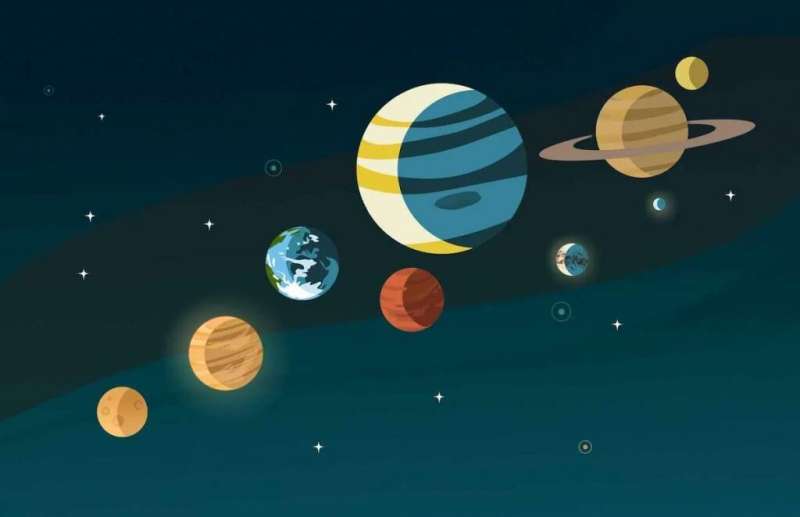
We've had a long-running series here at UT on potential solutions Fermi paradox—why aren't we able to detect any alien life out there in the Universe? But more possible solutions are being developed all the time. Now, another paper adds some additional theory to one of the more popular solutions—that aliens are just too busy to care about us.
The paper, released on arXiv, was written by Amri Wandel of the Racah Institute of Physics at the Hebrew University of Jerusalem. It makes two basic assumptions. First, aliens don't really care about planets with life on them. Second, they would care if they could detect intelligent life on one.
For the first assumption to be valid, it would help if the occurrence of "biotic" (i.e., having biology) planets is widespread. In that case, even advanced civilizations might not have enough resources to devote to fully exploring those planets, especially in the form of an actual probe.
Proposing a new idea for spacecraft propulsion that involves dynamic soaring
Tuesday, 06 December 2022 15:30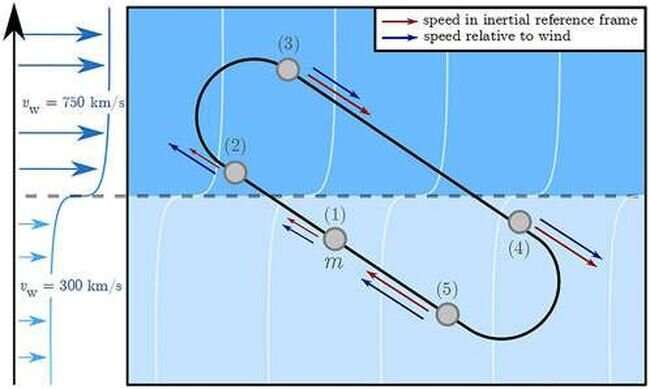
A team of researchers from McGill University and the Tau Zero Foundation is proposing a new idea for faster spacecraft propulsion that involves dynamic soaring. In their paper published in the journal Frontiers in Space Technology, the group outlines the idea of dynamic soaring as it applies to a speedy way to move through space and other possible uses for it.
Over the past several decades, as human-built space vehicles have made their way to many of the planets and moons in our solar system, it has become clear that a means is required for creating spacecraft that can get to distant destinations in space much faster.
Coming soon: MTG The Next Generation
Tuesday, 06 December 2022 13:10 Video:
00:00:48
Video:
00:00:48
One week today, the first of a new generation of weather satellites will take to the skies. The Meteosat Third Generation system is the most complex and innovative meteorological satellite system ever built. It will bring new capabilities to monitor weather, climate and the environment from space like never before – promising to further bolster Europe’s leadership in weather forecasting.
Join us for the live launch coverage of the Metetosat Third Generation Imager on 13 December on ESA Web TV.
Chinese commercial methane-fueled rocket set for first launch
Tuesday, 06 December 2022 12:28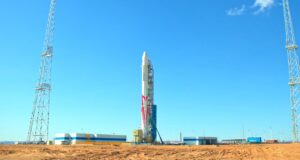
Landspace is preparing for a test launch of its Zhuque-2 rocket in what could be a marker for the progress being made by Chinese commercial launch companies.
Slingshot Aerospace completes $40.8 million funding round
Tuesday, 06 December 2022 11:00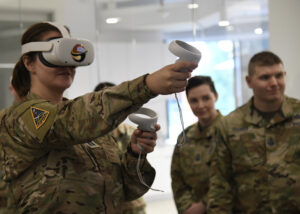
Slingshot Aerospace announced Dec. 6 it has raised $40.8 million in a Series A2 funding round.
The post Slingshot Aerospace completes $40.8 million funding round appeared first on SpaceNews.
Orion swings by the moon on its way back to Earth
Tuesday, 06 December 2022 09:14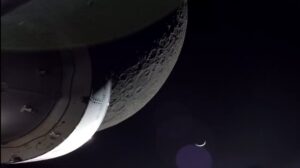
NASA’s Orion spacecraft flew by the moon for a second and final time Dec. 5, performing a maneuver that sets up the spacecraft for a splashdown in the Pacific Ocean in six days.
The post Orion swings by the moon on its way back to Earth appeared first on SpaceNews.
China's Shenzhou-14 astronauts return safely, accomplishing many "firsts"
Tuesday, 06 December 2022 06:05 Three Chinese astronauts on board the Shenzhou-14 manned spaceship returned to Earth safely on Sunday, after accomplishing many "firsts" during their six-month space station mission.
Shenzhou-14's return capsule, carrying astronauts Chen Dong, Liu Yang and Cai Xuzhe, touched down at the Dongfeng landing site in north China's Inner Mongolia Autonomous Region at 8:09 p.m. Beijing Time, accor
Three Chinese astronauts on board the Shenzhou-14 manned spaceship returned to Earth safely on Sunday, after accomplishing many "firsts" during their six-month space station mission.
Shenzhou-14's return capsule, carrying astronauts Chen Dong, Liu Yang and Cai Xuzhe, touched down at the Dongfeng landing site in north China's Inner Mongolia Autonomous Region at 8:09 p.m. Beijing Time, accor NASA's Orion spaceship slingshots around Moon, heads for home
Tuesday, 06 December 2022 01:23 NASA's Orion spaceship made a close pass of the Moon and used a gravity assist to whip itself back towards Earth on Monday, marking the start of the return journey for the Artemis-1 mission.
At its nearest point, the uncrewed capsule flew less than 80 miles (130 kilometers) from the surface, testing maneuvers that will be used during later Artemis missions that return humans to the rocky cel
NASA's Orion spaceship made a close pass of the Moon and used a gravity assist to whip itself back towards Earth on Monday, marking the start of the return journey for the Artemis-1 mission.
At its nearest point, the uncrewed capsule flew less than 80 miles (130 kilometers) from the surface, testing maneuvers that will be used during later Artemis missions that return humans to the rocky cel Giant mantle plume reveals Mars is more active than previously thought
Tuesday, 06 December 2022 01:23 On Earth, shifting tectonic plates reshuffle the planet's surface and make for a dynamic interior, so the absence of such processes on Mars led many to think of it as a dead planet, where not much happened in the past 3 billion years.
In the current issue of Nature Astronomy, scientists from the University of Arizona challenge current views of Martian geodynamic evolution with a report on
On Earth, shifting tectonic plates reshuffle the planet's surface and make for a dynamic interior, so the absence of such processes on Mars led many to think of it as a dead planet, where not much happened in the past 3 billion years.
In the current issue of Nature Astronomy, scientists from the University of Arizona challenge current views of Martian geodynamic evolution with a report on Methods for building lunar landing pads may involve microwaving moon soil
Tuesday, 06 December 2022 01:23Plant on China's Shenzhou-15 spaceship begins growing
Tuesday, 06 December 2022 01:23 The Arabidopsis thaliana plant boarding on China's Shenzhou-15 manned spaceship has begun growing, the China Science and Technology Daily reported on Monday.
The Shenzhou-15 spaceship was launched at 11:08 p.m. on Nov. 29, 2022. About 20 hours later, Chinese astronauts placed the Arabidopsis thaliana in a biological incubator in the life and ecological experiment cabinet inside the Wentian
The Arabidopsis thaliana plant boarding on China's Shenzhou-15 manned spaceship has begun growing, the China Science and Technology Daily reported on Monday.
The Shenzhou-15 spaceship was launched at 11:08 p.m. on Nov. 29, 2022. About 20 hours later, Chinese astronauts placed the Arabidopsis thaliana in a biological incubator in the life and ecological experiment cabinet inside the Wentian Second Time's the Charm: Sols 3671-3673
Tuesday, 06 December 2022 01:23 As happens occasionally, our previous plan did not execute quite as expected. There was an issue with the rover's avionics in Wednesday's plan just before MAHLI was to take images of our contact science target "Roxinho." This precluded that imaging, the subsequent drive and observations taken from our remote sensing mast. Thankfully our engineering team here at JPL assessed the fault and felt co
As happens occasionally, our previous plan did not execute quite as expected. There was an issue with the rover's avionics in Wednesday's plan just before MAHLI was to take images of our contact science target "Roxinho." This precluded that imaging, the subsequent drive and observations taken from our remote sensing mast. Thankfully our engineering team here at JPL assessed the fault and felt co Impact-induced formation of microscopic magnetite first confirmed in Chang'E-5 lunar soil
Tuesday, 06 December 2022 01:23 A research team led by Prof. LI Yang and Dr. GUO Zhuang from the Institute of Geochemistry of the Chinese Academy of Sciences (IGCAS) conducted in-situ electron microanalysis of spherical iron-sulfide grains in the finest Chang'E-5 lunar soil and has confirmed the presence of impact-induced sub-microscopic magnetite.
The study was published in Nature Communications on Nov. 23.
Magnet
A research team led by Prof. LI Yang and Dr. GUO Zhuang from the Institute of Geochemistry of the Chinese Academy of Sciences (IGCAS) conducted in-situ electron microanalysis of spherical iron-sulfide grains in the finest Chang'E-5 lunar soil and has confirmed the presence of impact-induced sub-microscopic magnetite.
The study was published in Nature Communications on Nov. 23.
Magnet Sierra Space selected by Maxar to provide solar power solutions for constellation of proliferated LEO satellites
Tuesday, 06 December 2022 01:23 Sierra Space, a leading space company building an end-to-end business and technology platform in space to benefit life on Earth, reports that the company won a significant space defense contract with Maxar. Under the agreement, Sierra Space will provide revolutionary solar power solutions and production capability.
This contract will support a constellation of 14 satellites that use Maxar'
Sierra Space, a leading space company building an end-to-end business and technology platform in space to benefit life on Earth, reports that the company won a significant space defense contract with Maxar. Under the agreement, Sierra Space will provide revolutionary solar power solutions and production capability.
This contract will support a constellation of 14 satellites that use Maxar' NASA's Roman Mission completes key optical components
Tuesday, 06 December 2022 01:23 Engineers at Ball Aerospace, one of the industrial partners for NASA's Nancy Grace Roman Space Telescope, have installed and aligned the element wheel assembly (pictured above) into the telescope's Wide Field Instrument. The assembly contains eight science filters, two dispersive elements (a grism and prism) and a "blank" element (used for internal calibration) that will help scientists solve so
Engineers at Ball Aerospace, one of the industrial partners for NASA's Nancy Grace Roman Space Telescope, have installed and aligned the element wheel assembly (pictured above) into the telescope's Wide Field Instrument. The assembly contains eight science filters, two dispersive elements (a grism and prism) and a "blank" element (used for internal calibration) that will help scientists solve so 
